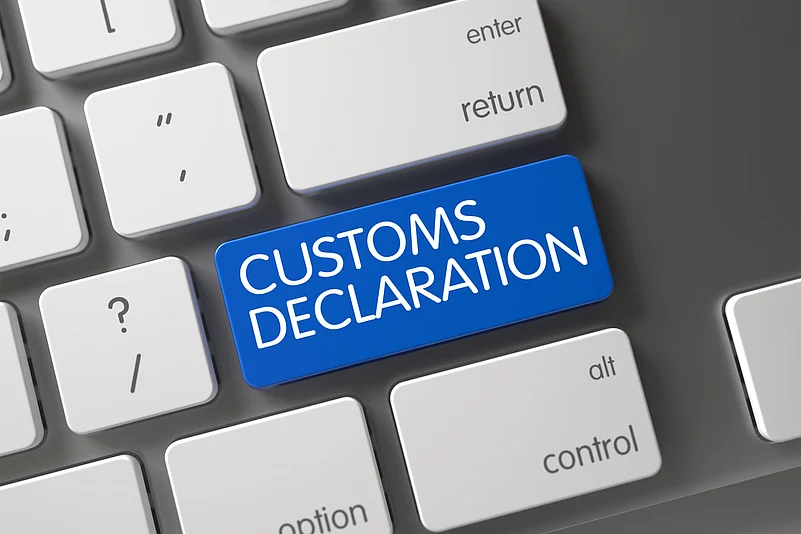The underlying theme of customs duty-related budgetary proposals in the Union Budget 2021 are simplification, liberalisation, digitisation and self-reliance.
In continuation of the recently introduced scheme of faceless assessment of customs duty payable in respect of goods imported, one of the big announcements was intent to further reduce taxpayer and tax payee interface vide introduction of a common customs electronic portal to facilitate registration, filing of bills of entry and shipping bills, payment of duty, services of notices, orders and even summons. It is also proposed that amendments can now be carried out in bills of entry and shipping bills, after clearance of goods from the port, through the customs-automated system based on risk evaluation. These trade facilitation measures were directed towards the use of technology to reduce paperwork and enhance the ease of doing business. Having a customs portal, much in line with the GSTN portal for GST compliance, will go a long way in reducing turnaround time of import and export transactions.
Furthermore, in order to account for any possible delay in clearance of imported goods, the date for filing bill of entry for clearance of goods was advanced by two days. This would indeed reduce the demurrage that importers would have to incur for any delay in assessment and clearance of imported goods
The Finance Minister (FM) also announced the government’s intent to further reduce the number of conditional customs duty exemptions in the tariff. This shall further reduce the scope of any interpretational issues as to whether the conditions were met or otherwise, at the time of assessment of bill of entry. About 400 existing conditional customs duty exemptions in the tariff would be reviewed by 1 October 2021, with the objective of reducing these to the minimum. Furthermore, all conditional exemptions in the tariff, whether existing or newly-introduced, would be valid only for a period of two years and thereafter shall automatically lapse. Reducing conditional exemptions will reduce needless litigation and also simplify the customs tariff.
Another taxpayer friendly measure was to prescribe a mandatory time limit of two years for completion of any inquiry, that culminates into issuance of a tax notice. Currently investigation authorities typically initiate such enquiries after any audit, and search and seizure operations, which continues endlessly, much to the chagrin of the taxpayer. A fixed time frame to complete investigation and issue a demand notice substantially reduces needless harassment of a tax payer in hands of investigating agencies who tend to pressurize and attempt to enlarge the scope of initial inquiry by requiring taxpayer to provide reams of information and documentation by repeated summons, including that to senior management of the investigated company.
Another trade friendly measure is the relaxation in operations permitted under the scheme of ‘Import of Goods under Concessional Rate of Duty’ (IGCR/scheme). Thus, the scheme shall now permit – (i) job work on most imported goods, (ii) outsourcing for manufacturing goods, and (iii) payment of customs duty on depreciated value, on clearance of capital goods imported under the scheme. These relaxations were a long pending ask by exporters who import goods and raw materials, to manufacture finished goods for export purposes. These measures will enhance the ability of exporters to further localize production and become more competitive in the global market
Changes are also proposed to the Indian Customs Tariff Act with effect from 1 January 2022, so as to ensure that the classification of goods under the tariff is done based on global principles of classification, under the newly introduced Harmonized System of Nomenclature 2022 by the World Customs Organization. As GST rate schedule too is also based on the customs tariff, trade would be required to revisit the existing classification post the above changes to ensure that they are compliant with the law.
Trade liberalisations introduced in the budget are mainly directed towards enhancing trust in honest taxpayers. However, these are coupled with introduction of strict deterrent measures to prevent customs duty fraud by dishonest ones! Thus, penalty in case of frauds, involving refund of duty/tax has been enhanced up to five times of such refund claim and customs officers have also been empowered to confiscate goods intended to be exported under such wrongful claims.
The customs duty rate changes in the budget were largely intended to promote local manufacturing and help exporters get on to the global value chain and export better, by enhancing rates of duty on specified finished goods and by reducing duty on inputs and raw materials, apart from promoting the beleaguered MSME sector. Thus, customs duty has been reduced on – (i) copper and stainless-steel scrap, (ii) primary products of alloy, non-alloy and stainless steel, and (iii) naphtha.
With a view to encourage domestic production, customs duty has been enhanced on solar invertors, certain auto and mobile phones parts, steel screws and plastic builder wares, polycarbonates, and on raw cotton and silk and leathers. The introduction of the Agricultural Infrastructure and Development cess on certain imported products was not intended to increase customs duty on the products (given that an offset was provided by way of an equivalent reduction in customs duty), but to enhance the Central Government’s share in the pool of tax revenues shared with states, as cesses are not included in the divisible tax pool.
To conclude, the budget announcements related to customs did not deviate from the longstanding fiscal policy path of rationalisation of customs duty to encourage domestic manufacturing and gradually ease complex customs procedures for exporters. Most importantly, the FM wisely chose not to adopt, the tempting measure to sharply enhance customs duties across the board to bolster government coffers, despite the significant fall in tax revenues pursuant to the pandemic-induced economic slowdown.
The author is Senior Director, Deloitte India
DISCLAIMER: Views expressed are the author's own, and Outlook Money does not necessarily subscribe to them. Outlook Money shall not be responsible for any damage caused to any person/organisation directly or indirectly.


























